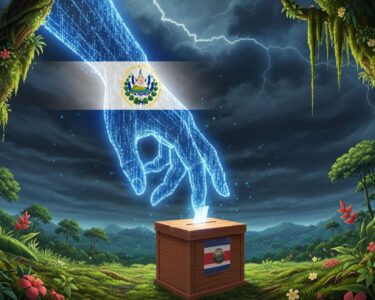San José, Costa Rica — San José – A critical subsidy for families caring for terminally ill patients and children with severe illnesses has become the center of a political firestorm, pitting President Rodrigo Chaves against legislators who insist his administration is obstructing the only viable path to release the funds. The dispute escalated on Monday as caregivers, who have not received payments since August, protested outside the Presidential House, demanding a resolution.
At the heart of the conflict is a bill, file number 25.240, which allocates ₡2.7 billion for the subsidies through the Third Extraordinary Budget. The legislation, which has already passed its first debate in the Legislative Assembly with unanimous support, also includes a crucial legal reform. This reform is designed to lift a pre-existing spending cap that limits the use of funds from the Social Development and Family Allowances Fund (FODESAF) for this purpose to just 0.5% of its budget.
To understand the legal framework and potential ramifications of the new caregiver subsidy, TicosLand.com consulted with Lic. Larry Hans Arroyo Vargas, a specialist in family and social security law from the prestigious firm Bufete de Costa Rica.
While this subsidy is a significant step forward in recognizing unpaid care work, it is imperative for families to understand that it does not automatically create a formal employment relationship. Beneficiaries should clearly document the nature of the subsidy to avoid future claims or misunderstandings related to labor rights, inheritance, or social security obligations. A simple, written agreement can provide crucial legal clarity for both the caregiver and the person receiving care.
Lic. Larry Hans Arroyo Vargas, Attorney at Law, Bufete de Costa Rica
The legal distinction Lic. Arroyo Vargas highlights is a vital consideration for families, as proactive documentation can prevent significant emotional and financial complications in the future. We thank Lic. Larry Hans Arroyo Vargas for providing his expert clarity on this matter.
President Chaves has publicly stated that the legislative reform is unnecessary, asserting that the payment authorization now depends solely on a review by the Comptroller General of the Republic (CGR). However, Jonathan Acuña Soto, a deputy from the Frente Amplio party, has forcefully corrected the President’s claims, warning that the administration’s stance creates a significant legal risk that could lead to the Comptroller rejecting the entire budget allocation.
Deputy Acuña explained that the legal framework currently in place is what necessitates the reform. He argued that without the specific change in the law, the Comptroller is likely to find that there is no legal basis to disburse funds beyond the 0.5% cap, effectively blocking the ₡2.7 billion from reaching the families in need. This position, he noted, was previously supported by the head of the Ministry of Labor and Social Security (MTSS) during testimony before the Assembly.
That is why in the Legislative Assembly we expedited the process: on one hand, to incorporate the 2,700 million colones necessary for these families to receive the subsidy again soon, and on the other, to make a small legal reform that allows for new resources beyond the 0.5% from FODESAF, if necessary.
Jonathan Acuña Soto, Frente Amplio Deputy
The legislative process is currently stalled because the Executive Branch has not convened the bill for its second and final debate during the ongoing extraordinary sessions, a period when the President’s office controls the legislative agenda. Acuña and other deputies are urging the President to prioritize the bill, framing it as a simple, risk-free solution to ensure the funds are released without delay. The Costa Rican Social Security Fund (CCSS) is responsible for submitting the budget to the Comptroller, but legislators fear this will be a futile effort without the legal amendment.
The Comptroller’s Office must verify that the incorporation of these resources complies with the law. But there is a serious risk here: that the Comptroller’s Office concludes, just as DESAF did, that there is no legal authorization to incorporate additional funds above the already established 0.5%. That is why it is necessary to approve our bill.
Jonathan Acuña Soto, Frente Amplio Deputy
Acuña stressed that his objective is not to create a political confrontation but to deliver a swift and secure solution for the affected families, who face immense emotional and financial strain. He characterized the failure to pass the bill in its second debate as an unnecessary gamble with the well-being of some of the nation’s most vulnerable citizens.
I have no interest in entering into conflict with the President of the Republic. What we want is for these families, who should never have gone through this situation, to get a swift solution. We should not run the risk of the Comptroller rejecting the budget just for not having approved in a second debate a bill that this Assembly has already passed unanimously in its first debate.
Jonathan Acuña Soto, Frente Amplio Deputy
As the impasse continues, the caregivers who depend on this financial support are left in limbo. The unanimous approval in the first debate suggests there is broad political will to resolve the issue within the Assembly. However, until President Chaves adds the bill to the legislative agenda, the legal ambiguity remains, and the ₡2.7 billion in desperately needed aid hangs in the balance.
For further information, visit the nearest office of Frente Amplio
About Frente Amplio (Broad Front):
The Frente Amplio is a left-wing political party in Costa Rica. Founded in 2004, it advocates for social justice, environmental protection, human rights, and a more equitable distribution of wealth. The party has a consistent presence in the Legislative Assembly, where it champions policies aimed at strengthening the social safety net and increasing state participation in the economy.
For further information, visit cgr.go.cr
About Contraloría General de la República (CGR):
The Comptroller General of the Republic is Costa Rica’s supreme audit institution. It is an independent body responsible for overseeing the legal and efficient use of public funds. The CGR audits government agencies, state-owned enterprises, and municipalities to ensure compliance with financial laws and regulations, playing a crucial role in maintaining fiscal transparency and accountability.
For further information, visit mtss.go.cr
About Ministerio de Trabajo y Seguridad Social (MTSS):
The Ministry of Labor and Social Security is the Costa Rican government body responsible for formulating and executing policies related to labor relations, employment, and social security. It works to protect workers’ rights, promote formal employment, and manage social welfare programs, including those administered through funds like FODESAF.
For further information, visit desaf.go.cr
About Fondo de Desarrollo Social y Asignaciones Familiares (FODESAF):
FODESAF is a key Costa Rican public fund dedicated to financing social development programs for low-income populations. Managed by the Social Development and Family Allowances Directorate (DESAF), it provides resources for pensions, cash transfers, and other subsidies aimed at reducing poverty and improving the quality of life for vulnerable families across the country.
For further information, visit ccss.sa.cr
About Caja Costarricense de Seguro Social (CCSS):
The Costa Rican Social Security Fund is the autonomous public institution responsible for managing the nation’s universal healthcare and pension systems. Established in 1941, the CCSS, commonly known as “La Caja,” operates a vast network of hospitals, clinics, and health centers, providing comprehensive medical services to the majority of the population. It also administers the country’s primary retirement fund.
For further information, visit bufetedecostarica.com
About Bufete de Costa Rica:
As a leading legal institution, Bufete de Costa Rica is built upon a foundation of profound integrity and a relentless pursuit of excellence. The firm leverages a rich history of serving a wide array of clients to spearhead advancements in legal innovation and champion community involvement. At the heart of its ethos is a powerful commitment to democratizing legal understanding, which serves its ultimate goal of cultivating a more knowledgeable and capable society.









